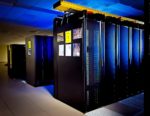Offering what it calls an alternative to “all-or-nothing” migrations off mainframe systems, Oregon-based Alchemy Solutions has unveiled NeoData zLink, which enables organizations to move applications to Microsoft’s .NET Framework while the associated data continues to reside on the mainframe.
Many companies have applications and processes that are not as important as they were when they were written—in some cases 20 years ago or more—or that simply don’t make sense any longer in today’s world, said Ron Langer, Alchemy’s general manager.
“The problem is that data is all intertwined,” he explained. If all the data is in DB2, for example, ODBC connectors can do the trick. But unstructured VSAM data, which typically is shared across multiple applications, is more difficult to get to “in a normal way,” he added.
The solution most benefits companies that aren’t looking to completely move off their mainframes, but simply want to control their MIPS and the costs that go with that, Langer said. “The primary push [to moving off mainframes] is cost savings,” he said, citing the example of Crédit Agricole, the leading retail bank in France, which moved off 1,000 MIPS and will save an estimated €1 million per year.
Further, transitional migration off mainframes lowers the risk of application modernization efforts because the data is left untouched. While the application logic and business logic are moved onto the .NET platform, the data remains behind, helping companies “dip their toe in” to mainframe migration, Langer said.
Alchemy Solutions was carved out of mainframe manufacturer Fujitsu in late 2008, Langer said, when the Japanese computing giant decided software products no longer fit into its corporate plans. Thus, the .NET COBOL compiler built by Fujitsu is part of the NeoData solution, which also includes NeoData for SQL Server (which is how data is moved off the mainframe into the .NET environment); NeoKicks, for moving CICS transactions off the mainframe; and NeoServices, for service-enabling applications still running on the mainframe.






